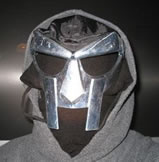ANNOUNCING A NEW FEATURE: MODERN CLASSICS!
Not that there isn’t enough great music out there—this year is proving to be a banner year both for major label artists like Nas and Lil’ Wayne and for little indie folks like Grand Archives and The Features—but I’ve been noticing lately how many recent albums fell through the cracks, and failed to get the attention they deserved from either me, the blogosphere, or both. So what will constitute a “modern classic� Well, for one thing it’ll have to be a fairly recent release—within a decade or so. For another, it will have to be one of those records where you never skip a track. And having an effect on the industry is gravy, but not required. And a great example of a record that meets these requirements is Berkeley Place’s first featured certified modern classic:
HAIKU D’ETAT-“Self Titled.â€
Haiku D’Etat, on the remarkably diverse and always surprising Project Blowed underground rap label, released their self-titled debut in 1999. The band consisted of underground duo (and friend-and-foe to Joe Budden) The A-Team (Aceyalone and Abstract Rude), and Mikah 9 from The Freestyle Fellowship. (You may also know Abstract from Abstract Tribe Unique, another underground rap band.) The band called itself Haiku d’Etat to signify the “poetry takeover” they hoped would occur.
The album contained a dramatic array of sounds—the dancehall/boom bap pioneered by KRS-One (“Los Dangerousâ€); spacey rhythms punctuated by odd harmonies (“Non Compos Mentisâ€); grime (“Westside Slip N Slideâ€) . . . There’s even a Bob Marley cover (“Kayaâ€). It was also marked by the different style of each of its members. Wu Tang Clan was arguably the best collective to combine gangstas, hippies, thinkers, and ballers, but Haiku didn’t use its diversity to keep the listener off balance. Instead, each of its members used their skills to create a unique, seamless whole. Acey brought his intricate and detailed lyrical skills, which can be off-putting to those who prefer flow; as a counterbalance, Mikah brought his smoother, more improvised jazzy style; and backing them up, Abstract Rude used his rich voice to provide bottom and soul. Most of the production was by “The Elephant†(a.k.a. Fat Jack), who combined samples, live horns and flutes, and random crowd sounds and crying babies to form the intricate tapestry necessary to back a band with such range.
If you’re bored by commercial rap, or curious to hear how deep it can get as an art form, check out this modern classic.


